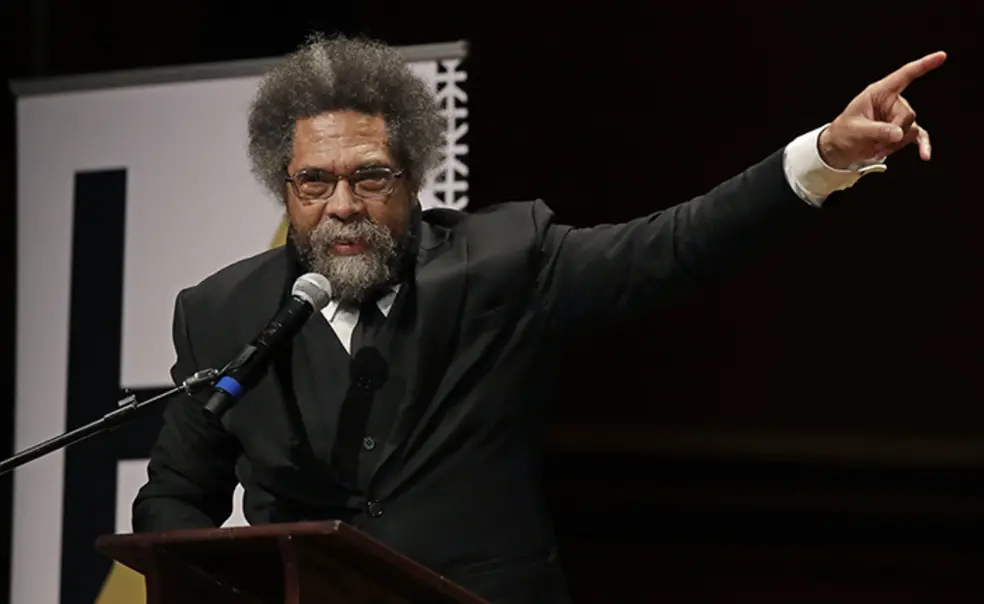Post-election special:
Professors respond to Obama's victory
This is what comes to mind when Cornel West *80 thinks about the election of the United States' first African-American president:
First, tears: "the tears of my mother, almost 80 years old," the tears that signify both "great suffering and great hopes" for the end of the age of Reagan, with its "indifference to the poor, the weak, the most vulnerable."
Next, symbolism "without measure," in the idea of Barack Obama and Michelle Robinson Obama ’85 in the White House with their two daughters paying on the manicured lawn -- "with that puppy."
But let's not forget the questions, West says. West -- scholar, public intellectual, hip-hop artist -- would say this to Obama: "I want to know, now that you've won, what you're really made of."
West was one of five professors on a panel convened less than 24 hours after the votes were counted. Everyone - panelists and audience members alike - still seemed giddy over the results. When Obama's name was announced, audience members (many of whom were sent from the overcrowded Friend Center lecture hall to watch the proceedings on simulcast) rose to their feet to applaud. "Oh, happy day!" said Woodrow Wilson School Dean Anne-Marie Slaughter ’80 as she began her presentation, taking the words from Edward Hawkins' gospel song.
Other panelists were professors Julian Zelizer (history), Eddie S. Glaude Jr. *97 (religion and African-American studies), and Farrah Griffin (Columbia University, African-American studies). Together, they discussed the challenges that would face Obama after January.
West wondered whether he would prove to be a great statesman like Abraham Lincoln, an "opportunistic politician" like Bill Clinton, or an "experimentalist" like FDR - "in my view, not a great statesman, but he tilted in that direction."
Panelists noted that it remained unclear how much an Obama administration would push the interests of the poorest and most vulnerable Americans, and how African-American politics might change. "We can't assume easy solidarities anymore," Glaude said. "We have to figure out how to do African-American politics in the age of Obama."
One of the sharpest exchanges came in several discussions of whether America has entered a "post-racial" age. Slaughter suggested that while the nation was not there yet, younger people are less inclined to think of people and issues through a racial lens.
But West argued that discussion of a "post-racial America" diverts attention from important matters that remain based in the racial divide. Just because white voters were willing to vote for a black president does not mean the nation is post-racial, he said, noting that black voters have been selecting qualified white candidates over mediocre black ones for decades. "It just means that you're less racist than your momma is."












No responses yet